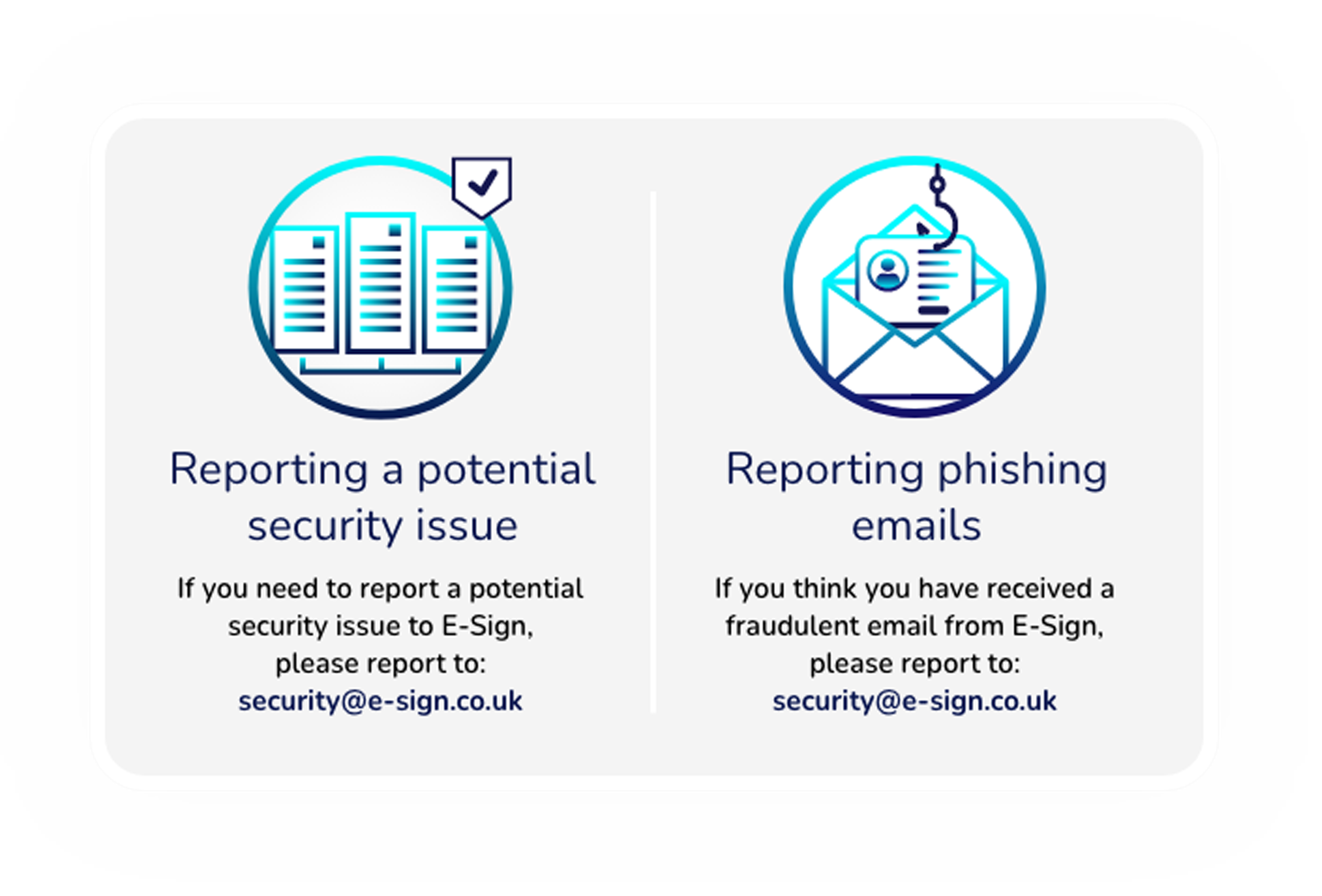eSign places significant importance on its trust and reputation and we treat security incidents with utmost seriousness.

Spoofing occurs when the sender uses the exact target domain to send mail. Impersonation happens when the sender attempts to send mail that looks like or is perceivably similar to a target domain, targeted user, or brand.
Reporting
While eSign utilizes multiple security tools to prevent spoofing attacks, reporting remains crucial for identifying and responding to attacks promptly. Vigilance against impersonation attacks is also necessary. As a data processor, we are committed to keeping your data private, with regular vulnerability checks and annual government-approved third-party penetration testing, adhering to the latest privacy legislation.
To read out Privacy policy, please click here.
Reporting a Potential Security Issue
To report a potential security issue to eSign, please email: security@esigndigital.com.
Reporting Phishing Emails
If you believe you have received a fraudulent email from eSign, please email: security@esigndigital.com.

Fake links- Avoid fake links by accessing your documents directly from no-reply@e-sign.co.uk
To verify the legitimacy of an email link, hover over it with your cursor before clicking. All links from eSign will redirect to https://app.e-sign.co.uk/
Imitation Email Address – eSign emails requesting you to sign an envelope usually do not contain attachments, unless the sender has uploaded one. If uncertain, refrain from clicking the attachment, as you can access it on the document signing page on the eSign platform. Completed envelopes will contain a valid PDF file, not a ZIP or executable.
Attachments – eSign emails requesting you to sign an envelope typically do not contain attachments, unless the sender has uploaded one. If unsure, avoid clicking the attachment, as you can access it on the document signing page on the eSign platform. Completed envelopes will contain a valid PDF file, not a ZIP or executable.
False Sense of Urgency – Cyber criminals can attempt to pressure you into action by creating a sense of urgency within an email. Be cautious of emails creating a false sense of urgency to pressure you into action.
Misspellings and Bad Grammar – Fake emails often have misspellings, incorrect grammar, and missing words. Check before taking any action.
Unsafe Sites/Deceptive URL – The term “https” should always precede any website requesting personal information. If “https” is absent, it’s not a secure web session, and you shouldn’t enter personal data. A legitimate eSign sign-in page address always starts with “https://.”
Pop-Up Boxes – We do not use pop-ups as part of our email notifications. If you receive any pop-up notifications, it may be a sign of a scam.